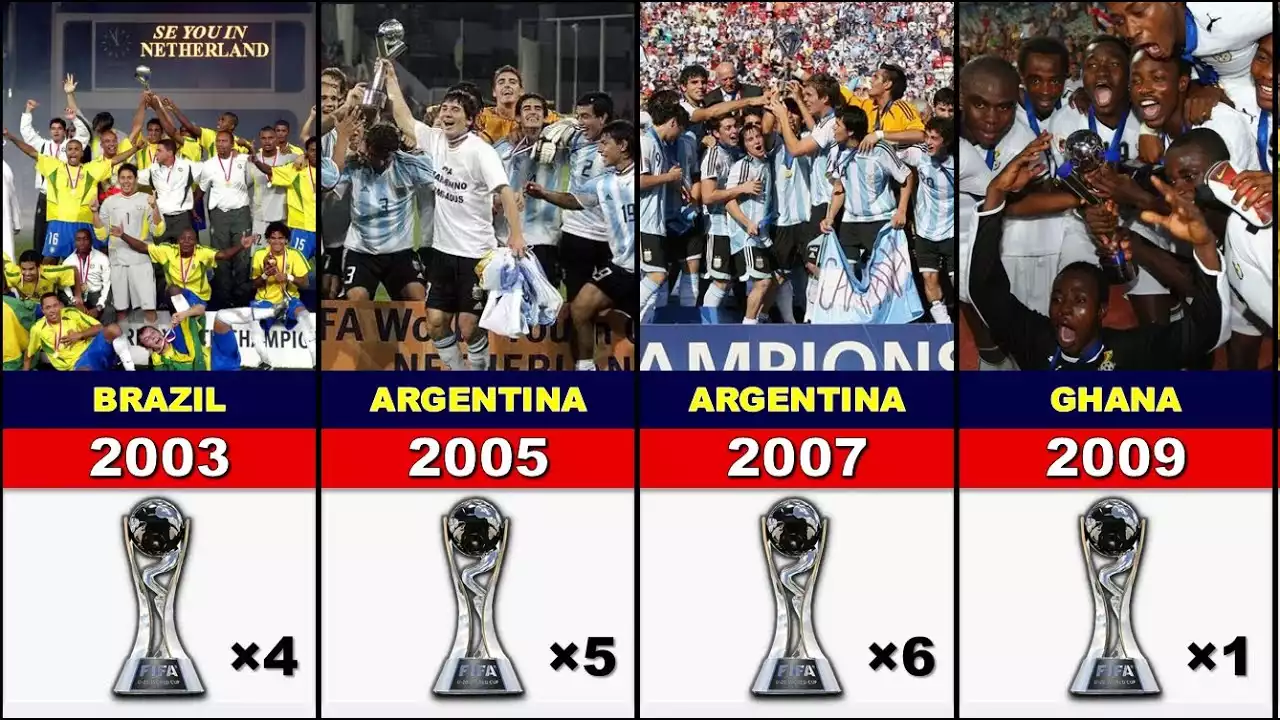Importance of qualification in the tournament
Qualifying for the FIFA U-20 World Cup is a significant achievement for any team aspiring to compete on the global stage. It provides an opportunity for young players to showcase their skills, gain valuable experience, and catch the attention of scouts from top football clubs around the world. The tournament serves as a platform for nurturing talent and shaping the future stars of the sport.
The 5 shortest paths to qualification
a. Path 1: Winning the continental championships
One of the most direct routes to qualification is by winning the continental championships. Each confederation organizes its own tournament to determine the representatives for the U-20 World Cup. Teams that emerge victorious in these competitions earn the coveted ticket to showcase their abilities at the global level. The level of competition in these continental championships is fierce, as teams battle it out against their regional rivals for a chance to secure their spot in the tournament.
b. Path 2: Being one of the host nations
Another shortcut to qualification is being one of the host nations. FIFA awards the hosting rights to multiple countries for each edition of the U-20 World Cup. The host nations are automatically granted a place in the tournament, allowing their young talents to compete against the best teams from around the world. This not only provides a significant advantage for the host nations but also brings the tournament closer to football fans in different regions.
c. Path 3: Finishing in the top positions of the previous edition
Teams that perform exceptionally well in the previous edition of the U-20 World Cup also have a shorter path to qualification. The top finishers from the previous tournament earn their place in the following edition, allowing them to continue their journey on the international stage. This path rewards consistent excellence and provides an opportunity for teams to build upon their past successes and showcase their progress.
d. Path 4: Winning a play-off match
In some cases, teams that narrowly miss out on direct qualification have the opportunity to secure their spot through a play-off match. These matches pit teams against each other in a battle for the final qualification spot. The stakes are high, and the pressure is immense as teams fight tooth and nail to claim the remaining ticket to the U-20 World Cup. This path adds an extra layer of excitement and drama to the qualification process.
e. Path 5: Receiving a wildcard entry
Occasionally, FIFA may award wildcard entries to teams that have demonstrated exceptional talent or potential. These wildcard entries are given to teams that may not have qualified through the traditional routes but have showcased remarkable performances or have promising young talents. This path provides an opportunity for underdog teams to participate in the tournament and prove their worth against established footballing nations.
Success stories of teams who took the shortest paths to qualification
Throughout the history of the U-20 World Cup, there have been several success stories of teams that took the shortest paths to qualification. One such example is the Nigerian U-20 team, which won the African Youth Championship in 1983 and went on to win the U-20 World Cup later that year. This victory not only marked Nigeria's first major international football triumph but also put the country on the map as a breeding ground for talented young players.
Another notable success story is the Serbian U-20 team, which received a wildcard entry in 2015. Despite not qualifying through the traditional routes, Serbia defied the odds and emerged as the champions of the tournament. Their victory showcased the importance of giving opportunities to teams with potential and demonstrated the unpredictable nature of the U-20 World Cup.
Challenges faced by teams aiming for qualification
While the paths to qualification may appear straightforward, teams face a myriad of challenges along the way. The level of competition in regional tournaments is intense, with teams battling against each other in high-stakes matches. Injuries, suspensions, and fatigue can also hamper a team's chances of qualification, as players must maintain their peak performance throughout the grueling qualification process. Additionally, teams must navigate logistical challenges, such as travel arrangements and adapting to different playing conditions in foreign countries.
Tips for teams aspiring to qualify for the FIFA U-20 World Cup
For teams aspiring to qualify for the FIFA U-20 World Cup, there are several key tips to keep in mind. Firstly, it is crucial to invest in youth development programs and academies to nurture young talents from an early age. Providing quality coaching, facilities, and opportunities for competitive matches can significantly enhance a team's chances of qualification. Secondly, teams should focus on building a cohesive and talented squad that can compete against the best in the world. This involves scouting and recruiting the best young players, fostering teamwork, and instilling a winning mentality. Lastly, teams must prioritize continuous improvement and learning from past experiences. Analyzing previous performances, identifying areas for improvement, and implementing effective training regimes can give teams a competitive edge in the qualification process.
The importance of youth development in qualification
Youth development plays a critical role in the qualification process for the FIFA U-20 World Cup. Countries that prioritize youth development programs and invest in nurturing young talents are more likely to produce competitive teams capable of qualifying for the tournament. Youth academies, coaching programs, and grassroots initiatives all contribute to the development of future stars, creating a sustainable pipeline of talent that can represent the country at the international level. By focusing on youth development, countries can lay the foundation for long-term success in football.
How qualification impacts a country's football development
Qualification for the FIFA U-20 World Cup has a significant impact on a country's football development. It provides national teams with valuable experience against top-quality opposition from around the world, exposing young players to different styles of play and tactics. This exposure helps players develop their skills, broaden their footballing knowledge, and gain a deeper understanding of the global football landscape. Additionally, qualification brings international recognition to a country's footballing prowess, attracting attention from scouts, sponsors, and potential investors. This increased visibility can lead to improved infrastructure, increased funding, and further opportunities for youth development.
Notable players who made their mark in the FIFA U-20 World Cup after qualifying through the shortest paths
The FIFA U-20 World Cup has been a launching pad for numerous talented players who qualified through the shortest paths. One notable example is Lionel Messi, who represented Argentina in the 2005 edition of the tournament after his team won the South American Youth Championship. Messi's performances in the U-20 World Cup caught the attention of football fans worldwide, and he quickly rose to prominence as one of the best young talents in the world. His success in the tournament paved the way for a remarkable career, with Messi going on to become one of the greatest footballers of all time.
Another player who made a significant impact in the U-20 World Cup is Paul Pogba. Pogba represented France in the 2013 edition of the tournament after his team finished as runners-up in the previous edition. Pogba's dominant performances in midfield earned him the tournament's Best Player award and propelled him into the spotlight. He subsequently secured a move to Juventus and later returned to Manchester United, where he established himself as one of the world's most influential midfielders.










